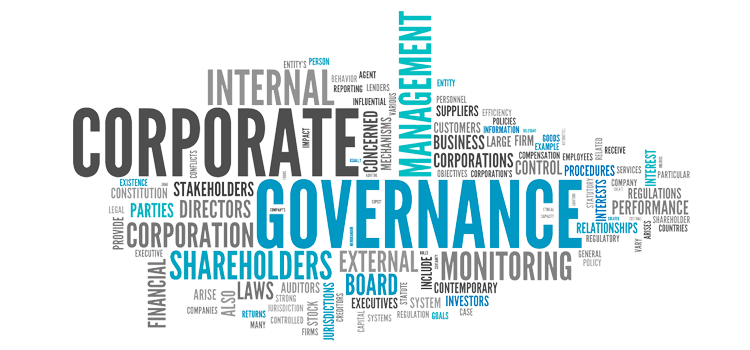|
Christmas Eve is upon us, signalling both the end of the work year for many (including me) and, importantly, one of the most significant days on the Christian calendar. Before stepping away from my desk and client projects for a few days, I want to express gratitude to the thousands of people around the world who sought advice, attended courses, listened to talks or asked questions during 2016. Thanks also to an anonymous readership: the website received over 382,000 page views (double last year)—a level of interest beyond my wildest imagination. I count it a great privilege to have had the opportunity to serve so many boards and directors. Thank you for your encouragement and support. Looking to 2017, my commitment to serve boards and directors intent on realising the performance of the companies they govern is strong. To this end, if you have a question or a request, please let me know and I'll respond in the first few days of 2017. In the meantime, my best wishes to you and your family. Kia kaha.
0 Comments
Corporate governance—the concept and the practice—has been the subject of much debate over the past two or three decades, especially as researchers, shareholders and the public have sought to make sense of the extent and meaning of the term and the appropriate role of the board. A cacophony of ideas and understandings have now pervaded our academies and directors' institutes (including that the scope of corporate governance extends well beyond the boardroom to include the whole of the organisation). As a concequence, the appropriate role of the board is not clear. Is it one of oversight and control, or is the pursuit of performance more important? The answer to this question is dependent on one other: What exactly is corporate governance? Many directors have become confused about these questions and, as a result, the appropriate role and contribution of the board. Thankfully, a straightforward answer is at hand. The term 'corporate governance' was coined just 56 years ago by Richard Eells, an academic. He used the term to describe "the structure and functioning of the corporate polity" (the board of directors). Sir Adrian Cadbury added that corporate governance is "the means by which companies are directed and controlled". In other words, corporate governance is an overarching term to encapsulate what boards (should) do as corporate goals are pursued. Corporate governance frameworks (such as those proposed by Tricker and Garratt) provide the underlying detail: they describe how the board should steer and guide the company it is responsible for governing. Directors expecting to make effective contributions in 2017 and beyond would be well-advised to consider this what–how distinction very carefully: a common (and agreed) understanding is crucial if the board is to work harmoniously and decision-making is to be effective.
The annual general meeting (of shareholders) is an important forum in company life; shareholders can engage with the company directly, and the board of directors is duty-bound to provide an account. Typically, such engagement includes hearing reports about the company's performance (typically the outgoing financial year) and outlook; asking questions; and, importantly, making important decisions including, inter alia, the election of directors who will be charged with overseeing the company (making decisions and ensuring performance) until the next annual meeting. Despite the importance of the annual meeting, attendances have been declining in recent years. For example, Tony Featherstone, a commentator with the Australian Institute of Company Directors, recently observed that attendances have declined by 25 per cent over the decade to 2015. Others have noticed similar declines. Reasons for declining attendances are many and varied. While the lack of time and the tyranny of distance are commonly cited, a perceived inability to influence the decision-making process is a big turn-off for many shareholders, especially those who perceive that voting has been stitched up before the meeting. Some commentators have suggested that new approaches are needed if shareholders are to be re-engaged. One alternative that has garnered widespread interest is the 'virtual annual meeting' to replace the in-person meeting. Tony Featherston and Anthony Hilton have both argued the case recently. Superficially, the concept of a virtual annual meeting sounds great. Shareholders who cannot attend the annual meeting in person can particpate via an electronic channel. They can listen to presentations, ask questions and vote—and they can do so without incurring the time and cost of travelling to attend in person. But does remote attendance constitute acceptable engagement? Shareholders attending virtual meetings often cannot 'see' or interact directly with other remote participants. Consequently, the balance of power can (and does) shift from its rightful place (the shareholders) to the head table (the board of directors). The casuality is debate. The challenge for shareholders is to resolve whether the benefits of the virtual annual meeting outweigh the more traditional in-person meeting. Both formats have their strengths and weaknesses. Does the virtual meeting (a group of people sitting at remote locations with computers or tablets and collaboration software) enhance genuine participation (cf. attendance) as is claimed, or is the construct a thinly-veiled attempt by the board or management to assert control and constrain healthy debates at annual meetings? And what of accountability? Where does that lie and, importantly, where should it lie? The answer is analogous to the quantity vs. quality debate. The annual meeting is the sole opportunity for shareholders to hear from the board and to hold it accountable. Accountability rightly includes answering questions and responding to challenges from those to whom the account is being provided. Boards should not be exempt from such scrutiny. Caveat emptor.
The 33rd Governance Institute of Australia national conference was held in Sydney recently. Previously, the Governance Institute (GIA) was known as Chartered Secretaries Australia, an outpost of the Institute of Chartered Secretaries and Administrators (ICSA). The name change, implemented several years ago, implies that the body is moving beyond serving the company secretary as its core constituency. I attended to observe; meet others; serve as a panelist (topic: The pursuit of productivity, see picture); debate topical challenges for boards; and, learn more about the practice of corporate governance, especially the GIA's role in encouraging boards in their value-creation mandate. As this was my first GIA conference, some post-conference reflections are appropriate:
In sum, the conference revealed some interesting insights (see summaries in other blog entries below) and attendance was well worthwhile. However, I couldn't help but wonder whether the organisers missed an opportunity—to engage the group that actually carries ultimate responsibility for company performance; company directors. If the GIA is to make further progress towards its stated purpose, it is vital that company directors are active participants in the discourse.
This is the third update of several to summarise observations from the 33rd Governance Institute of Australia National Conference being held in Sydney this week. Here are the links to the first and second updates. (The final update, covering the second day, will be published tomorrow.) This update includes observations from the late afternoon session. The session was dominated by a panel discussion on the topic of culture and why it matters. John Price and Judith Fox, both of whom had addressed the conference earlier were joined by Peter WIlson (Chairman of the Australian Human Resources Institute) to discuss this important topic. Fox and Price quickly established the strong correlation between positive organisational culture and company performance, although they did so through the 'back door': asserting the poor culture often leads to erosion of value. While this assertion is intuitively accurate, the next statement caught many in the audience off guard. The statement was, and I quote, "Good governance frameworks lead to good culture". Really? I looked forward to hearing how this might be. Sadly, the claim was not substantiated—the audience was left hanging. I was hoping for something more substantive than a straightforward claim. Fortunately, Wilson provided it—his comments caught the audience's attention. Wilson tackled several myths of culture head on, reminding the audience that culture and performance are different; that a good culture is not a reliable predictor of high company performance (although the opposite is more reliably true as Fox and Price made clear); and, that culture can actually be measured, despite assertions to the contrary. Wilson backed up each of these claims with stories and/or evidence, all of which had strong practical undertones. Most notably, Wilson called out the importance of the board to set the 'tone at the top', and to insist (through reporting and walk-throughs) to ensure that the 'mood in the middle' is consistent and not, as is more common a 'muddle in the middle'. Beyond the panelist's comments, my thoughts wandered to the title of Garratt's helpful book The fish rots from the head several times throughout the session. If the board is not leading by example, it is not leading at all.
|
SearchMusingsThoughts on corporate governance, strategy and boardcraft; our place in the world; and other topics that catch my attention. Categories
All
Archives
May 2024
|
|
Dr. Peter Crow, CMInstD
|
© Copyright 2001-2024 | Terms of use & privacy
|





